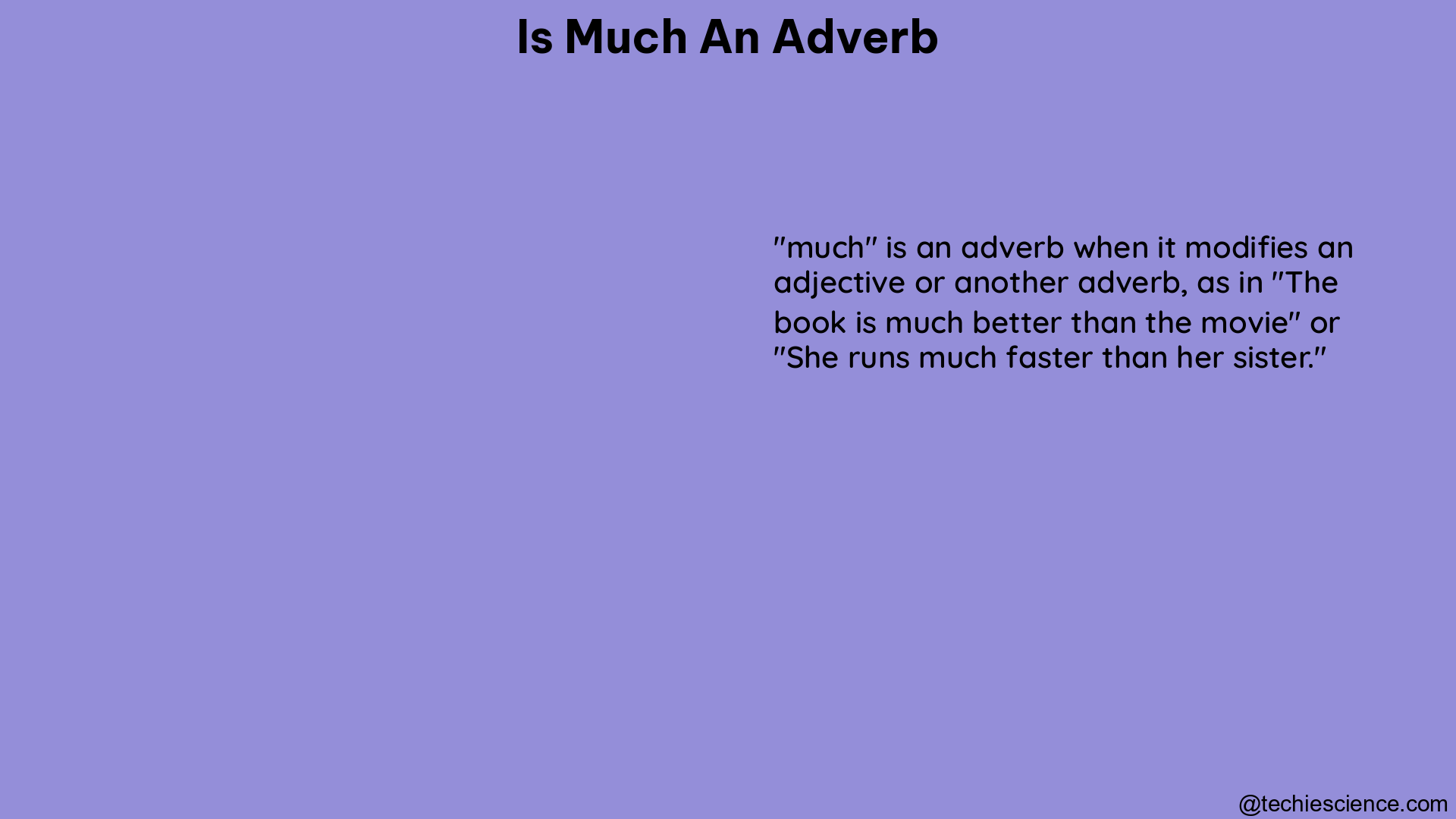“Much” is a versatile word in the English language that can function as both an adverb and a determiner. As an adverb, “much” is used to indicate a great extent, degree, or quantity of something. This comprehensive guide will delve into the various grammatical specifications, usage patterns, and advanced details surrounding the adverbial use of “much.”
Examples of “Much” as an Adverb
Degree or Extent
- The new car is much better on gas mileage.
- They both talk too much.
- She doesn’t visit her family much.
Frequency
- He isn’t in the office much.
- You worry too much.
Comparison
- My new job is much the same as the old one.
- The other one was much too expensive.
Grammatical Specifications

Usage with Uncountable Nouns
- “Much” is primarily used with uncountable nouns, often in questions and negative sentences.
- Example: Do you have much free time?
Formal vs. Informal
- In formal writing, “much” is preferred over “a lot of” or “lots of” to maintain a more sophisticated tone.
Adverbial Forms
- “Very much” and “a lot” can also be used as adverbs to indicate a greater degree or extent.
- Example: I miss my family very much.
Theoretical Explanation
The adverb “much” is derived from the Old English word “micel,” meaning “great” or “numerous.” It is used to modify verbs, adjectives, or other adverbs, conveying a significant degree or extent. In sentences, “much” can describe the frequency or intensity of an action, the degree of a quality, or the quantity of something.
The usage of “much” is often contrasted with the more informal expressions “a lot” and “lots,” which are commonly used with countable nouns. This distinction helps maintain a formal and precise tone, especially in academic or professional writing.
Advanced Hands-on Details
Idiomatic Expressions
- “Much as” is an idiomatic expression used to indicate “although” or “even though.”
- Example: Much as I would like to stay, I really must go home.
Collocations
- “Much” is frequently used with adjectives like “better,” “worse,” “happier,” and “heavier” to form collocations that describe a significant change or difference.
Formal Writing
- In formal writing, particularly in British English, “much” is the preferred choice over “a lot” or “lots” to maintain a more sophisticated and academic tone.
Reference Links
- Cambridge Dictionary: Much, a lot, lots, a good deal (adverbs)
- Merriam-Webster: Definition of much
- Oxford Learner’s Dictionaries: much (adverb)
Hi… I am Sowndharya Jagadeeswaran, a university rank holder in M.A. English Literature. I have also done my master’s in Business Administration. Inquisitive as I am, my interest in action-oriented research helped me publish research papers in reputed journals. Now, as a career, I am an instructor where I teach young and adorable students the intricate technicalities of Public Speaking and Creative Writing. I also enjoy writing articles on topics I specialize and research in.
You can connect with me through LinkedIn.-